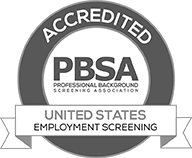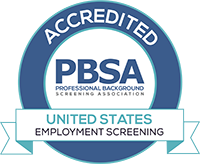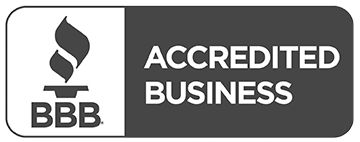BLOG
Ninth Circuit Bans Liability Waivers in Background Check Disclosures
March 7, 2017
In a recent decision, the Ninth Circuit appellate court ruled that including a liability waiver in a background check disclosure violates FCRA regulations.
Based on this decision, a class action lawsuit against an employer will now be allowed to proceed.
About the Lawsuit
A man named Sarmad Syed applied for a job at M-I LLC. He went through the standard interview process and was asked to grant permission for a background check. Syed reviewed the documentation he received from the prospective employer. One of the documents was a "Pre-Employment Disclosure Release", which informs applicants that data will be collected by a screening company and used to compile a background check report.
The disclosure included a liability waiver. It stated that applicants who sign the document thereby waive their right to sue for any violations of the Fair Credit Reporting Act (FCRA). Mr. Syed signed the document and later initiated a class action lawsuit against M-I LLC. The basis of his suit was a "sole disclosure" requirement in the FCRA. According to the lawsuit, adding a liability waiver to the disclosure document was a direct violation of the FCRA.
The Court's Ruling
The district court that initially heard the case ruled against Syed. They stated that the law was not clear and the lawsuit did not provide proof of a willful FCRA violation. Mr. Syed's lawsuit was dismissed.
However, that was not the end of this case. It was picked up by the Ninth Circuit, a federal appellate court. Their decision allowed the lawsuit to be reinstated and they issued a ruling about the legality of including waivers in background check disclosures.
The Ninth Circuit's Decision
The Ninth Circuit determined that including a liability waiver was a willful violation of FCRA law. This decision was made because the FCRA states that disclosure documents must consist solely of the disclosure. Including anything else in the disclosure, such as a liability waiver, was deemed a willful violation of the FCRA.
There is only one exception to the "sole disclosure" law, which was granted through an amendment made by Congress in 1988. The amendment allowed for disclosures to include a request for the applicant to authorize a background check. It is essential for employers to obtain consent before screening a candidate. However, no other exceptions, including liability waivers, were allowed. As such, the Ninth Circuit declared that it is unlawful to have liability waivers within a disclosure.
How This Impacts Background Screening
Any company that includes a liability waiver or any other documentation with their disclosure should be aware of this case. Employers are encouraged to review their applications and related documentation to ensure that they are compliant with the FCRA.
It is also worth noting that businesses should stay aware of new and changing regulations that impact the screening process. Backgrounds Online provides weekly blogs and monthly Newsletters to keep you informed of new laws and rulings that could impact your hiring practices.
Potential Repercussions of Violating FCRA Regulations
According to the FCRA, individuals who are impacted by violations of their rights may seek actual damages between $100 and $1,000 as well as relevant punitive damages. The case that Sarmad Syed initiated is a class action lawsuit. That means anyone who was denied employment by M-I LLC could be eligible to participate. Every plaintiff in the case will have the right to seek monetary compensation.
It is essential for employers to remain compliant with FCRA regulations throughout the hiring process. If you aren't sure if your employment practices are in compliance, contact the screening experts at Backgrounds Online. We are happy to discuss how we can help you remain compliant with federal and state laws that cover the background screening and hiring process.











